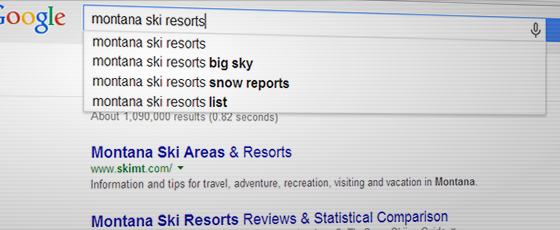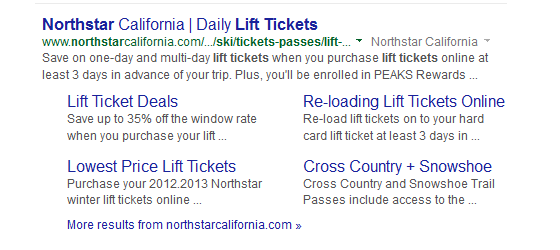Websites
Ski Resorts & Google Search: Should We be Worried by the Organic Results of Common Terms?


BLANCHARD
In the past I’ve talked about SEO, shared ideas for SEO, expounded on the importance of curated links, and let others do the same.
But never, in the nearly four years of running SlopeFillers, have I ever taken the time to see where we stand when it comes to resorts and their actual rankings for common terms.
Let’s change that, shall we?
The Plan of Attacks
I ran this analysis for a series of terms. Two were generic state-level terms, one actually used the resort’s name. For each state-level string I filled in the blank with one of ten states:
- Vermont
- Colorado
- California
- Oregon
- Maine
- Michigan
- Pennsylvania
- New York
- Utah
- Minnesota
…and then found a handful of states by averaging and aggregating the results. When it was resort specific, I analysed 25 different resorts which is a list longer than is worth mentioning here. All queries were performed on a browser with no search history nor was I signed in to any Google account.
Keep in mind that none of these alone represent substantial search volume, but variations of these do. So, within this analysis, these will act as indicators of overall resort rankings.
[State] Ski Resorts
The first were the variations of “Maine Ski Resorts”.
Although 40% of all page 1 results are resort-owned sites, the lack of results where the clicks come (#1-#3) says that most resort results come in the bottom half of page one.
[State] Ski Vacations
The second terms were variations of “Utah Ski Vacations”.
And, going one step further on the type of pages showing up in these results (main landing vs a lodging-themed sub page:
This time resorts found themselves in the #1-#3 sweetspot just as often as the more generic “ski resorts” term, but after that there was little else that showed up.
Combining the two, it seems like we can theorize that for a broad, state-level ski related term about 20% of the top 3 spots will be owned by resorts.
[Resort] Lift Tickets
As I mentioned, I replaced [resort] with 25 random ski resort names. If it could stand on it’s own like “killington” I simply used “killington lift tickets”. When it was a name that could mean something else like “hunter”, I added one more word to focus the results like “hunter mountain lift tickets”.
As I went I noticed that some resorts had sitelinks, so I started keeping track of that as well. Here’s a quick example if you aren’t sure what sitelinks are:
As I hoped, resorts dominate results for their own products with nearly 70% of the resorts I looked at owning the top 3 results for a “[resort] lift ticket” search.
The Good, The Bad
Now this is hardly an all encompassing analysis, but I learned quite a bit about resorts and the SEO habits.
More than anything I was surprised by how much traffic is going to places other than ski resorts when the original desire – finding a resort, going on a ski vacation – can only be satisfied by a resort. If there are gaps in the information they need to make a decision, maybe that’s a good place to begin your content strategy.
However you slice it, there is a huge opportunity for resort search traffic out there waiting for the resort that grabs this bull by the horns.
About Gregg & SlopeFillers
I've had more first-time visitors lately, so adding a quick "about" section. I started SlopeFillers in 2010
with the simple goal of sharing great resort marketing strategies. Today I run marketing for resort ecommerce and CRM provider
Inntopia,
my home mountain is the lovely Nordic Valley,
and my favorite marketing campaign remains the Ski Utah TV show that sold me on skiing as a kid in the 90s.
Get the weekly digest.
New stories, ideas, and jobs delivered to your inbox every Friday morning.











